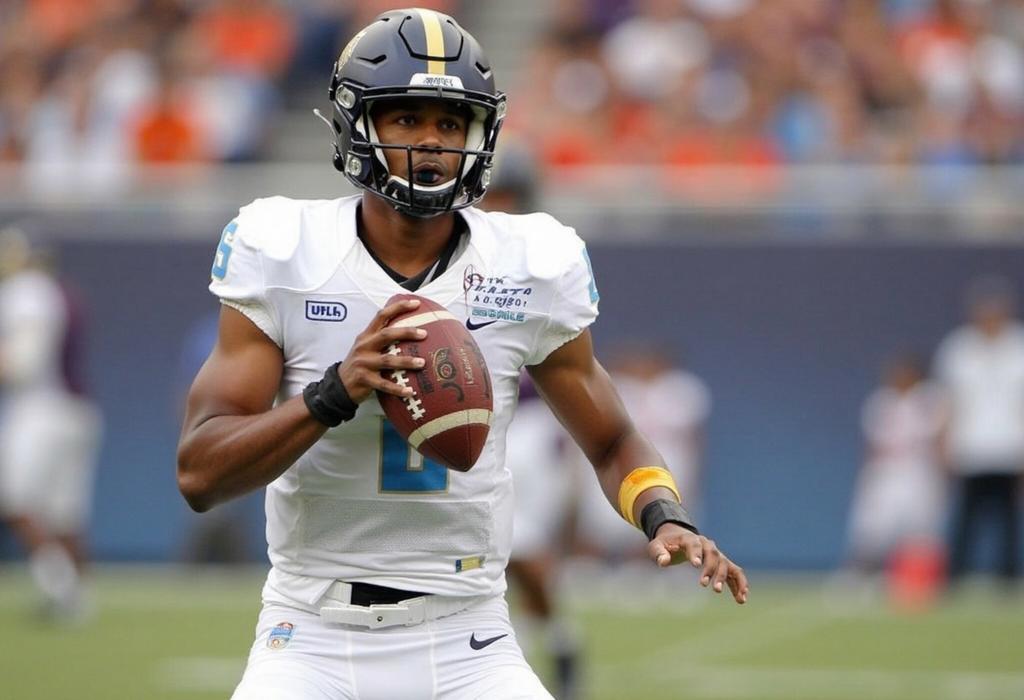The recent transfer of quarterback Nico Iamaleava from Tennessee to UCLA has brought significant attention to the evolving landscape of college football, particularly with the growing influence of Name, Image, and Likeness (NIL) deals. Iamaleava, who made headlines for his high-profile entry into the transfer portal, left Tennessee amid a dispute over contractual negotiations, reportedly seeking a raise from his initial $2 million NIL deal. His abrupt departure just days before Tennessee's spring game catalyzed an unusual sequence of events, leading to UCLA's acquisition and the subsequent departure of quarterback Joey Aguilar from UCLA to Tennessee. This situation not only reflects the complexities of NIL contracts but also highlights the competitive pressures within college football programs.
The fallout from Iamaleava's move brings to light several key issues. For one, his initial tenure at Tennessee ended after an already promising season, where despite leading the Vols to the College Football Playoff, he was ultimately deemed surplus to requirements by the coaching staff. Tennessee's head coach Josh Heupel emphasized that the program prioritizes its operational integrity using the phrase 'nobody is bigger than the Power T.' In this chaotic atmosphere, both Iamaleava and Tennessee appear to have miscalculated their negotiation strategies.
UCLA's head coach, DeShaun Foster, welcomed Iamaleava, viewing his addition as a pivotal opportunity to reset and revitalize the Bruins' struggling program, which endeavored for success in a highly competitive conference. Yet, as the dynamics unfold around the transfer, it raises ethical questions on player accountability in collegiate sports contexts. The influx of financial incentives has transformed once-simple athlete-staff dynamics into complex negotiations, akin to mercenary trades in professional sports.
Furthermore, this situation sets a precedent for future transfers, as both players and programs navigate the murky waters of NIL agreements. The introduction of buyout clauses in NIL contracts presents a new layer of complexity, indicating a shift towards more structured financial arrangements that could help mitigate the rampant unpredictability introduced by the transfer portal.
In analyzing the impact of these events, it can be seen that while UCLA gains a potentially elite player in Iamaleava, the volatility surrounding his transfer raises concerns about long-term implications for both individual career trajectories and institutional reputations. The entire incident serves as both a cautionary tale and a reflection of the current state of college athletics, as universities and athletes alike reconcile the demands of a cash-driven industry with the principles of student-athlete integrity.
As the ripples from Iamaleava's transfer continue to spread across the college football landscape, it becomes increasingly evident that the sport is undergoing seismic changes that could reshape its future for years to come. Beyond just Iamaleava, this transfer saga could also affect recruits like his younger brother, Madden, who opted to follow him to UCLA after flipping from Arkansas, signaling a larger trend of familial and strategic alignments in recruitment processes in the wake of NIL.
AD
AD
AD
AD
Bias Analysis
Bias Score:
60/100
Neutral
Biased
This news has been analyzed from 22 different sources.
Bias Assessment: The reporting exhibits some bias, particularly in the framing of Iamaleava as having negotiated poorly and UCLA as a desperate team in search of talent. Strong opinions are expressed regarding the ethics of player transfers and NIL deals, suggesting a judgmental tone towards Iamaleava's actions. This mix of objective reporting with subjective commentary contributes to a moderate bias score of 60.
Key Questions About This Article




